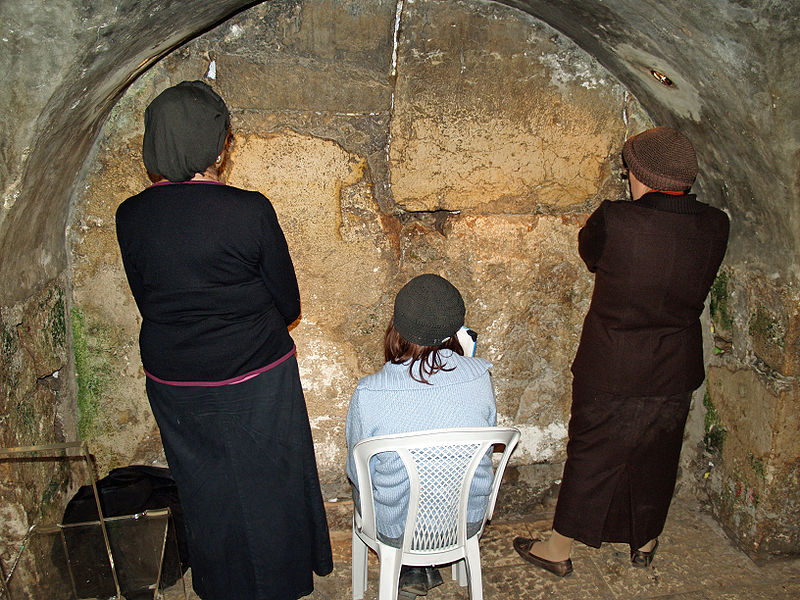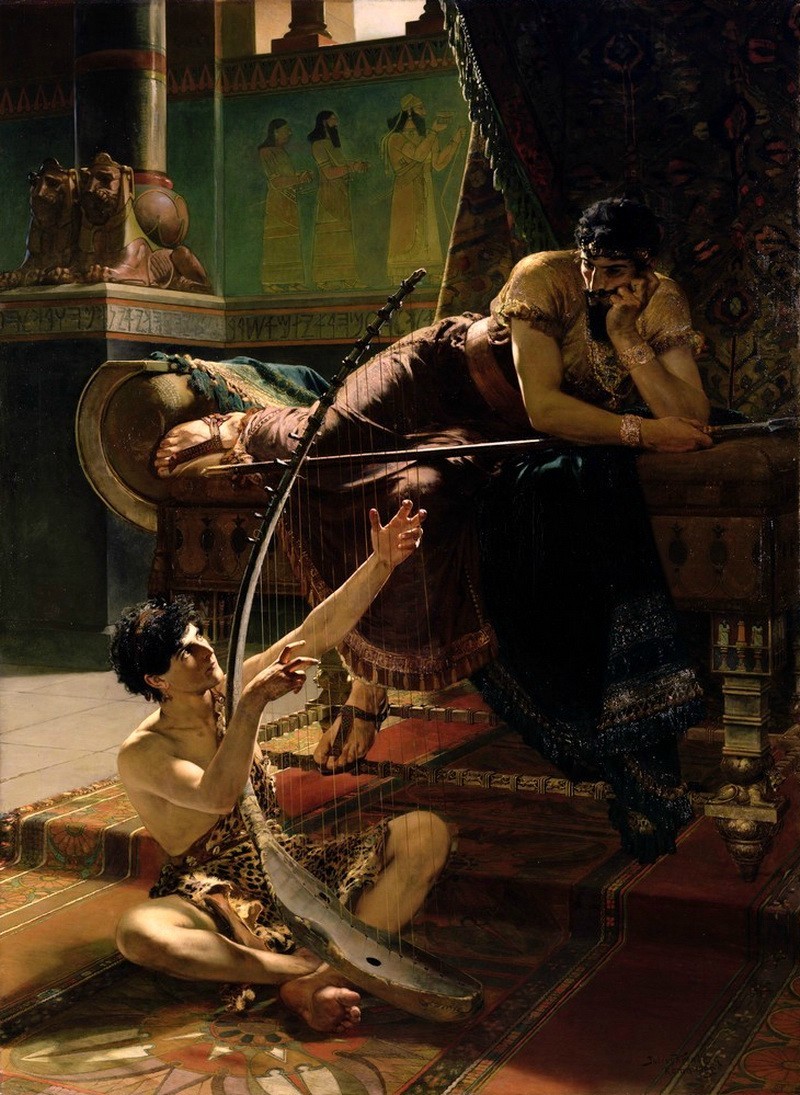Shabat Shalom

Editor Daveed Fakheri
1 * KORAH *
Korah and his followers rebel against
Moses' and Aaron's leadership and are killed;
God instructs Aaron regarding
laws of the priesthood.
By Nancy Reuben

Wikipedia :
The Punishment of Korah and the Stoning of
Moses and Aaron
Now, Korah, a Levite, along with two sons of Eliab, decided to rise up against Moses with the support of 250 community leaders. They combined against Moses and Aaron, saying "You've gone too far. Why do you raise yourself up above us?"When Moses heard this, he fell on his face, saying to Korah and his followers, "Come morning, God will make known who God is and who is holy." Then Moses added, "You have gone too far, sons of Levi. Is it not enough that God has set you apart from the community of Israel by having you perform the duties of the Lord's Dwelling Place? Will you seek priesthood too? Truly, you rebel against God

Wikipedia/ Picture
Having a king won't necessarily make
life easier for the 12 tribes of Israel.
The haftarah selection is from Samuel I, 11:14-12:22.
In the Book of Samuel, when the Israelites demand a king, God grants their request, and directs the prophet Samuel to find a young man named Saul and anoint him as king (Samuel I, chapter 9). The haftarah for Parashat Korah, which tells the continuation of this story, begins with Samuel preparing to travel to the town of Gilgal to perform Saul's official crowning
Parshat Korah is one of several portions that relates stories of dissension and resistance among some of the children of Israel against Moses and God during the nation’s desert wanderings. This parashah describes perhaps the most significant challenge to Moses and God’s leadership since the incident with the Golden Calf.
Korah, a cousin of Moses and Aaron, is joined by Datan and Aviram of the tribe of Reuben, and together they challenge Moses’ authority as a leader. They say that all of the people are part of God’s holy community, and thus who is Moses to elevate himself above the people? Further, they question why the Kohanim (priests) receive special privileges of the temple service.
Shabat Shalom And Have A Nice weekend

The Punishment of Korah and the Stoning of
Moses and Aaron
Now, Korah, a Levite, along with two sons of Eliab, decided to rise up against Moses with the support of 250 community leaders. They combined against Moses and Aaron, saying "You've gone too far. Why do you raise yourself up above us?"
When Moses heard this, he fell on his face, saying to Korah and his followers, "Come morning, God will make known who God is and who is holy." Then Moses added, "You have gone too far, sons of Levi. Is it not enough that God has set you apart from the community of Israel by having you perform the duties of the Lord's Dwelling Place? Will you seek priesthood too? Truly, you rebel against God

Wikipedia/ Picture
Having a king won't necessarily make
life easier for the 12 tribes of Israel.
The haftarah selection is from
Samuel I, 11:14-12:22.
In the Book of Samuel, when the Israelites demand a king, God grants their request, and directs the prophet Samuel to find a young man named Saul and anoint him as king (Samuel I, chapter 9). The haftarah for Parashat Korah, which tells the continuation of this story, begins with Samuel preparing to travel to the town of Gilgal to perform Saul's official crowning
In the Book of Samuel, when the Israelites demand a king, God grants their request, and directs the prophet Samuel to find a young man named Saul and anoint him as king (Samuel I, chapter 9). The haftarah for Parashat Korah, which tells the continuation of this story, begins with Samuel preparing to travel to the town of Gilgal to perform Saul's official crowning
Parshat Korah is one of several portions that relates stories of dissension and resistance among some of the children of Israel against Moses and God during the nation’s desert wanderings. This parashah describes perhaps the most significant challenge to Moses and God’s leadership since the incident with the Golden Calf.
Korah, a cousin of Moses and Aaron, is joined by Datan and Aviram of the tribe of Reuben, and together they challenge Moses’ authority as a leader. They say that all of the people are part of God’s holy community, and thus who is Moses to elevate himself above the people? Further, they question why the Kohanim (priests) receive special privileges of the temple service.
Shabat Shalom And Have A Nice weekend


No comments:
Post a Comment